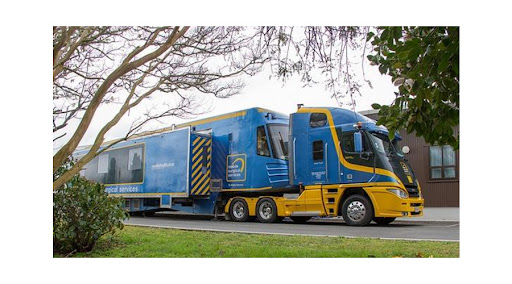5 March 2022
The Mobile Health service's "operating theatre on wheels" is picking up many more cancer cases than in the past, says chief executive Mark Eager.
Colonoscopies, gastroscopies and low-risk day surgeries are all performed on the bus as it visits 25 rural towns between Kaikohe and Gore.
Mark Eager says lifestyle, diet and the fact people are living longer contribute to the rising numbers.
"The bowel screening programme has been really good. People are getting sent those tests in the mail and they are getting on a screening list...
"But people have been reluctant to go to the doctor because they think Covid's on so I won't bother the doctor or it's hard to get to the doctor because there are less doctors in rural New Zealand at the moment."
Border closures have meant overseas-trained doctors haven't been able to come into the country. Many of them fill positions in rural towns.
"There aren't as many of them around so it's hard to get appointments. People are waiting longer and often they are just giving up or are presenting much later when cancers are much more advanced."
Mark says some surgeries once offered on the bus are now no longer available to make way for cancer surveillance.
"People either have to put up with the pain or discomfort or go privately, and a lot of people can't do that so they end up just having to live with it.
"Everywhere we go our lists are absolutely full."
The surgical bus has been winding its way around New Zealand for 20 years and almost 29,000 operations have been performed in it.
There's also a huge demand for pediatric dental procedures, Mark says.
"That means general anaesthetics for kids under five where we are having to go in and put a kid to sleep and drill, fill and pull out teeth. We could be on the road all day every day doing that in rural New Zealand.
"There's no fluoride in many of the areas...You know people often think that kids are drinking Coca-Cola but ... it's just a fact that kids don't brush their teeth. There might be a family toothbrush that they share. All of those things contribute to poor oral hygiene."
Source and quoting Radio New Zealand.
Yours sincerely
Frank Short



